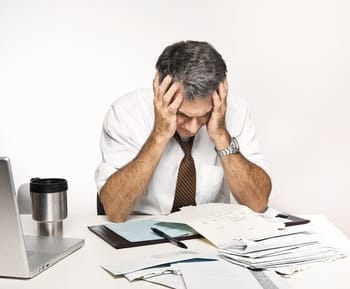Obtaining a discharge of debt from a bankruptcy court is designed to relieve the debtor of having to repay those debts. In theory, this should give some peace of mind and reassurance to a debtor that they can move forward with their lives. Unfortunately, some creditors have a hard time letting go, and end up violating the bankruptcy discharge order. If you have been granted discharge through bankruptcy proceedings, it is important to be mindful of what a discharge violation looks like and what you can do about it.
It is Unlawful to Violate a Discharge Injunction
The legal effect of a discharge in bankruptcy is injunctive relief against creditors initiating or continuing collection actions against a debtor for a discharged debt. This has been construed to include both the act of collection actions, as well as a creditor’s failure to take action when collection activities continue despite the discharge injunction. Some examples of these actions may include:
· Continued and repeated phone calls or letters to the debtor seeking payment of the discharged debt.
· Filing a lawsuit against a debtor following discharge.
· Seeking payment from the debtor in a subsequent bankruptcy proceeding years later.
· A creditor selling the debt to another creditor, which then initiates its own collection actions on the discharged debt.
Holding Creditors Accountable
Appellate Courts have found that under Bankruptcy Code Section 105, bankruptcy courts are empowered to enter orders to hold creditors who violate discharge injunctions accountable. Specifically, subsection 105(a) states that:
The court may issue any order, process, or judgment that is necessary or appropriate to carry out the provisions of this title. No provision of this title providing for the raising of an issue by a party in interest shall be construed to preclude the court from, sua sponte, taking any action or making any determination necessary or appropriate to enforce or implement court orders or rules, or to prevent an abuse of process.
This may include a contempt order that includes actual damages, emotional damages, punitive damages, and/or attorney’s fees. In order to find a creditor liable for damages, the debtor must meet a two part test that: (1) the creditor has knowledge of the discharge; and (2) that the creditor took collection actions following the discharge.
Let Levitt & Slafkes, P.C. Work For You
If you have received a discharge injunction through bankruptcy, yet continue to experience harassment from creditors, contact us today. It is a violation of federal law for creditors to continue to harass debtors after debt has been discharged. We find this behavior to be offensive and infuriating. At Levitt & Slafkes, P.C., we have served clients for decades and will use the full weight of the law to shut down unlawful collection actions. Let us help you maintain the peace of mind that you have worked so hard to attain. Call Levitt & Slafkes, P.C., at (973) 323-2953, or reach us online to schedule a free consultation.
We are proudly designated as a debt relief agency by an Act of Congress. We have proudly assisted consumers in filing for Bankruptcy Relief for over 30 years.



